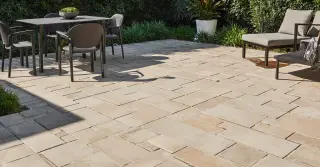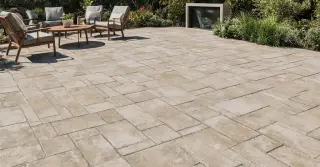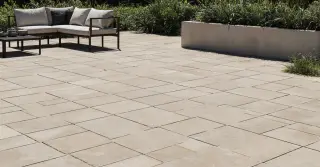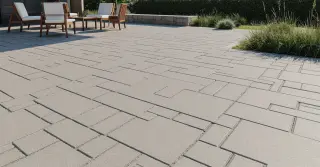Porcelain Pavers Cost

Porcelain Pavers Cost: Everything You Need to Know About Price, Value, and Long-Term Benefits
As property owners, architects, and outdoor design specialists start envisioning a landscaping transformation, one of the initial concerns that immediately arise is directly related to the porcelain pavers cost. Opting for porcelain means far more than just improving the look of an outdoor area, it secures advantages in resilience, practicality, and property appreciation. Understanding the pricing structure and what influences it allows anyone considering these products to make confident, well-informed decisions.
Unlike natural stone or traditional concrete, porcelain pavers are manufactured with advanced technology that guarantee compact structure, waterproof qualities, and enduring beauty. At first, the upfront porcelain pavers price may seem elevated due to these qualities, but the reality is that porcelain pavers provide long-term economic advantages, that outshine natural stone, concrete, or brick.
Standard porcelain paver pricing often falls within the $5–$10 per square foot bracket, depending on style, finish, thickness, and brand. High-end styles with ultra-realistic finishes inspired by natural elements often come at elevated rates. Another cost driver is the installation itself, which can vary from $10 to $25 per square foot depending on site preparation, labor, and design complexity. While this might seem significant, the low maintenance requirements drastically reduce lifetime expenses, unlike travertine or concrete, which demand costly ongoing treatments and repairs.
A key dimension worth emphasizing is durability. Even under heavy use and severe environments, porcelain maintains integrity and beauty. Homeowners in regions with freeze-thaw cycles especially value porcelain because of its resistance to cracking under temperature fluctuations. As a result, what seems like a high upfront price is recouped through the elimination of repairs and replacements.
The adaptability of porcelain’s design is another dimension shaping its overall price. While natural stone is limited to what nature provides, porcelain offers finishes that mimic anything from sleek modern slabs to rugged stone aesthetics. The ability to achieve uniform color tones, precise dimensions, and non-slip textures makes it a preferred material for pool decks, patios, and driveways. Premium customization often raises the cost of porcelain, buyers often see greater return on investment thanks to the added design sophistication.
Beyond purchase and installation, long-term maintenance expenses must be factored into total cost. Materials like stone and concrete often rely on protective coatings to remain intact. The non-porous nature of porcelain makes it immune to algae, fungi, and water stains, reducing ongoing care. Simple washing with soap and water keeps porcelain pristine, eliminating costly professional cleaning. Compared to competitors like travertine or concrete, porcelain’s easy upkeep drastically reduces lifetime ownership cost.
In terms of installation, another factor influencing the total porcelain pavers cost is the base preparation. Well-prepared bases guarantee the long-term alignment and safety of paved areas. Although skipping base preparation might look like savings, specialists emphasize its necessity. While more costly at first, proper base preparation prevents much larger repair bills later.
Green benefits make porcelain especially appealing in sustainable projects. Porcelain production follows eco-conscious methods and typically results in less environmental damage than stone extraction. Heat-resistant properties make porcelain especially suitable for pool decks and sunny patios. Eco-friendly aspects combined with comfort raise both lifestyle value and market desirability.
Another dimension of cost evaluation is return on investment. Real estate professionals often emphasize that outdoor living spaces with high-end finishes significantly boost property value. Porcelain instantly communicates elegance, long-term strength, and architectural quality. Potential buyers recognize the minimal maintenance requirements and long lifespan, which translates into tangible financial appreciation of the home. In this sense, the cost of porcelain pavers should be seen as an investment in equity as much as in lifestyle.
Porcelain is frequently assessed alongside stone materials like granite or bluestone. Materials like granite or bluestone might initially appear competitive in price, but factors such as irregular shapes, higher waste during cutting, and the need for ongoing sealing drive up long-term costs. Concrete, while cheaper to start with, quickly loses visual appeal and integrity. Within a short span, concrete deteriorates, whereas porcelain remains stable, refined, and low-maintenance.
Another perspective often overlooked is the safety factor. Manufacturers design porcelain with textured surfaces specifically to improve grip in outdoor conditions. Safety-conscious buyers highly value porcelain’s combination of beauty and secure footing. While the inclusion of slip-resistant textures may slightly increase the porcelain pavers cost, it offers benefits that are priceless in terms of safety.
Porcelain collections today cater to both cost-conscious buyers and luxury-seekers alike. Basic ranges provide limited variation but retain porcelain’s fundamental strength and longevity. High-end ranges often feature oversized slabs that deliver a seamless and elegant look. Buyers can select collections strategically based on available funds and desired outcomes.
In the end, porcelain pricing must be weighed against its extraordinary lifespan and enduring benefits. Beyond the square footage numbers, buyers gain resilience, timeless design, ease of maintenance, safety, and long-lasting property value. Although upfront costs may seem steep, cumulative savings make porcelain a highly profitable choice.
For anyone evaluating options in the paving market, porcelain remains one of the most compelling choices. Porcelain’s cost reflects its unmatched performance and extraordinary longevity. Choosing porcelain equates to investing in design, strength, and property value simultaneously.




